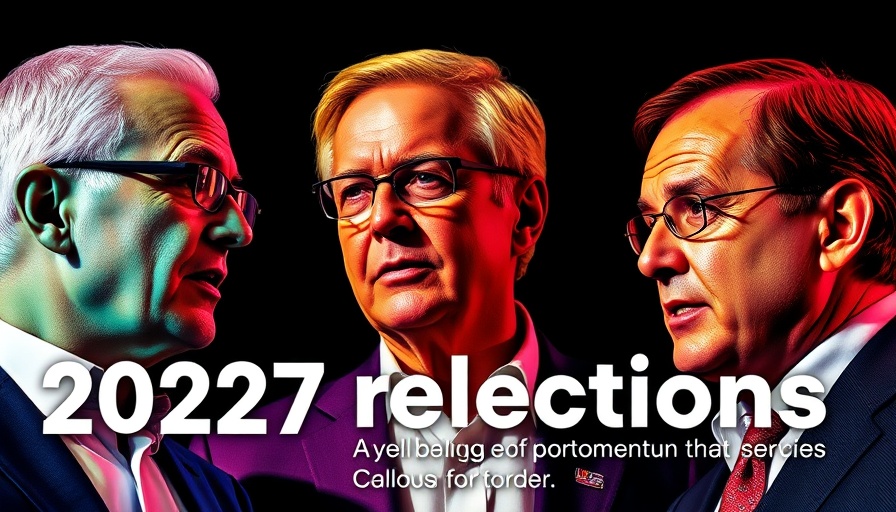
Nigerian Democracy at a Crossroads: Exploring the Threat of a One-Party State
The countdown to Nigeria's 2027 elections has already initiated discussions loaded with urgency among political analysts and citizens alike. The alarming vulnerability of opposition parties hints at a potentially dire future: a single-party system that undermines Nigeria's cherished democratic frameworks. This deterioration, as articulated by various political figures, jeopardizes the very foundation of democracy in Nigeria.
In '2027 Elections: Democracy Under Threat as Opposition Weakens', the discussion dives into the fragility of Nigeria's democratic framework, prompting a deeper analysis on the potential implications of a compromised political landscape.
Understanding the Current Landscape of Opposition Politics
Political observers have voiced concern over the fragmentation within Nigeria's opposition parties, particularly the Labour Party and the People's Democratic Party (PDP). Both parties face internal conflict that weakens their capacity to challenge the ruling All Progressives Congress (APC). During a recent discussion led by notable political experts, it was highlighted that the failure to unite opposition factions fosters an environment conducive to political domination.
The President's Shift: From Opposition to Power
A striking element of the political discourse is President Bola Ahmed Tinubu's shifting rhetoric regarding a one-party system. In 2010, he vehemently denounced such a structure, arguing that it threatened democracy. Fast forward to 2025, and his stance has altered, reflecting his current position at the helm of the ruling party. This raises critical questions about the motivations behind his shift and the implications for Nigeria's political landscape.
The Consequences of Political Disunity
Political fragmentation among the opposition parties has significant ramifications. As Marcel Ungo, Director-General of the Labour Party Directorate of Mobilization and Integration, elucidated, the power struggles and leadership crises within these parties detract from their primary objective: serving the people. These internal rifts enable the APC to consolidate its power without meaningful challenges, thus eroding the democratic space.
The Imperative for Coalition Formation
As Nigeria’s opposition grapples with existential threats, the notion of coalition-building emerges as a critical mechanism to reclaim political agency. Both the Labour Party and the PDP are encouraged to forge alliances, transcending personal ambitions to form a united front against the ruling party. However, skepticism persists regarding the sincerity of such coalitions, especially when past alliances have been criticized as opportunistic.
A Glimpse Into the Future: Predictions for Nigerian Democracy
The road ahead for Nigeria’s political landscape hinges upon whether the opposition can resolve its internal conflicts and present a cohesive strategy that resonates with the electorate. A fragmented opposition not only risks their electoral fate but also threatens the democratic principles that undergird Nigeria's governance. Observing the motivations of those in leadership positions and the direction they choose to take presents an opportunity for political rejuvenation or deterioration.
What’s at Stake for Nigerians?
The stakes are undeniably high for ordinary citizens. The quality of governance, accountability, and representation hangs in the balance as political parties posture for power. The outcome of the 2027 elections may very well demonstrate whether Nigerians can overcome entrenched political divisions to fortify their democracy. Citizens must call for unity among opposition forces to challenge the APC effectively.
In conclusion, the discourse surrounding Nigeria's political future is not merely academic; it is a pressing concern for millions who seek a government that reflects their aspirations. As political dynamics evolve, the collective agency of both citizens and opposition parties will be pivotal. Engaging actively in the democratic process, advocating for strong leadership, and championing reforms that enhance opposition unity are paramount to preserving Nigeria's democratic integrity.
 Add Row
Add Row  Add
Add 


 Add Row
Add Row  Add
Add 

Write A Comment